-
Understanding How Your Home Electrical Panel Works
When an electrician comes to your home to perform repairs, he may need to access your circuit breakers and electrical panel . Since most electrical panels are covered by doors, this part of your electrical system may seem like somewhat of a mystery. To get the most of your home electrical repairs, you should be sure to learn more about the basics of how your circuit breaker panel works. A licensed electrician in San Jose will be able to answer all of your questions about your electrical system. Here is a quick look at the basics of how your electrical panel works.
Panel of Fuses
When you open the door to your electrical panel, the first thing that you will notice is a panel of fuses. These fuses are also commonly referred to as circuit breaker. Each fuse is connected to the electrical supply in a certain area of your home. If you suddenly lose power to an area of your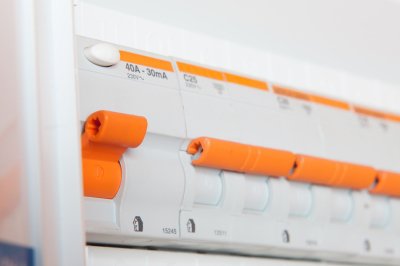 house, you may need to flip a circuit breaker to restore your electrical supply. After you open your electric panel, you will also be able to determine the total amperage capacity of your home’s electrical system .
house, you may need to flip a circuit breaker to restore your electrical supply. After you open your electric panel, you will also be able to determine the total amperage capacity of your home’s electrical system .Main Power Switch
Along with the many different circuit breakers that are connected to different areas of your home, your electrical panel will also contain a main power switch. The main power to your electric panel is typically located at the top of the unit. If your home requires extensive electrical repairs, your electrician may use this switch to temporarily cut the electrical supply to your home.Power Connection
Your electric panel receives electricity directly from your city’s municipal supply. The electric wires on your street are connected to the electric meter on your home’s exterior. Once electricity flows into the meter, it is sent to your electric panel through a series of wires. -
A Guide to Hiring an Electrician in San Jose
People generally rely on their electrical supply for a multitude of purposes in this day and age. The misuse of your circuit breaker in San Jose can leave you ordering take out food and missing your favorite television shows. Since electricity is so important to our daily lives, it is important to hire the right electrician to make sure you are taken care of. Here is a guide to hiring an electrician .
Research Thoroughly
When it comes to hiring a professional for any kind of job that may affect the overall comfort and convenience of your home, it is critical to find a trustworthy professional who will complete the job to your satisfaction. The best way to ensure that you are choosing the right electrician is to perform thorough research into your possibilities. The Internet is full of resources that you can use to compare reviews between different electricians; this allows you to find out what the people are like personally, how prepared and efficient they are, and whether or not they deal with dedicated circuits. There are many websites that you can access that offer unbiased reviews and opinions of customers who have used different services. Ask your friends and family if they have an electrician that they enjoy and find out if he or she would be a good fit for you.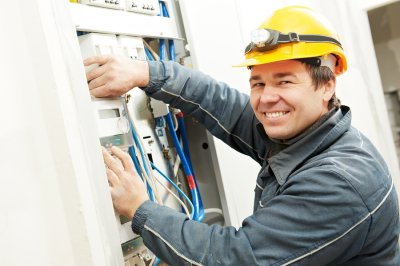 Ask the Right Questions
Ask the Right Questions
It is always a good idea to meet with an electrician before deciding to hire. This affords you the opportunity to see each other face to face and allows you to personally ask any questions you may have. Find out exactly what services the electrician offers, such as electric panel upgrades and circuit breaker services. Find out if the electrician is available around the clock or only at certain times; emergency services may prove useful if you find yourself with a power outage in the middle of the night .Know What You Are Agreeing To
Always be completely sure of what you are agreeing to before signing anything. Read and reread any contracts that you may have drawn up and be sure that there are no surprises waiting for either side. -
A Look at Electrical Wiring Codes
The electrical power used by your home is a complex system that makes use of many components including electric panels, dedicated circuits, and circuit breakers in San Jose. If any electrical components are installed or maintained improperly, severe consequences may result. Watch this video clip for a look at electrical wiring codes.
Residential electrical wiring codes ensure that your home is powered consistently and wired safely in order to minimize your chances of experiencing fires, short circuits, or other potential dangers. There are different factors in play when it comes to electrical wiring inside the home, especially considering the varying amounts of voltages that different appliances use. In the case of a home renovation or a home construction there are certain tasks that homeowners may perform and there are other tasks that can only be handled by a licensed electrician. You can find out about these specific tasks by contacting your local building codes department.
-
A Brief Overview of Residential Electrical Systems in San Jose
Residential electrical systems rely on a number of components and are regulated in several different ways. If you find yourself having problems with your home’s dedicated circuit, electric panel, or circuit breaker in San Jose, it is typically best to call a qualified electrician . Here is a brief overview of residential electrical systems.
The electricity that powers the appliances within your home comes from electrical lines that connect from the street to your meter box. Electricity is then transported to your electric panel where it can be manipulated by the homeowner or electrician. A certain number of amps are supplied and then divided between rooms of the home. The residential electrical system comes with certain protective features like circuit breakers that stop the flow of electricity in the case of a wire shorting out. Smoke alarms also work in communication with one another to alarm the entire household of a fire. A new home must undergo more than one inspection by a professional electrician before the house can be deemed safe for occupancy. Some homes make use of advanced wiring systems for appliances that need an abundance of power such as entertainment systems.
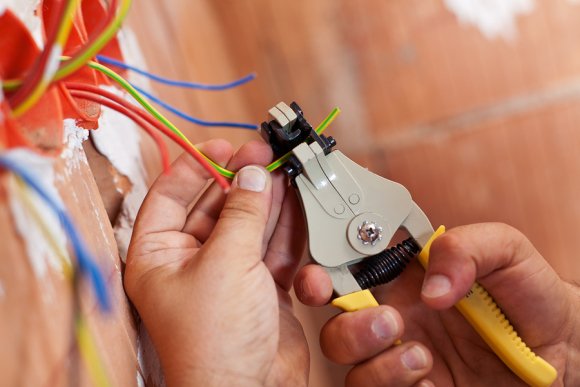
-
Manage Your Electrical Supply with a Home Generator in San Jose
During the winter season, storms and freezing temperatures could put your neighborhood at risk for a blackout. If you are seeking a great way to ensure that your electrical supply is not cut of in the event of an emergency, you may want to invest in a home generator. A generator will provide your appliances and circuit breakers with power, even if the municipal supply is cut off. An electrician serving San Jose can help you choose a generator that is suited to the needs of your home. Here is a quick overview of how a home generator can help you manage your electrical supply.
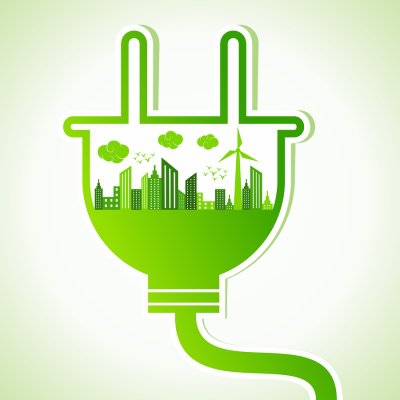
Types of Generators
The electricians at an electrical company can help you decide between two main types of generators to power your home. You will have your choice of either a portable generator or a standby generator. A standby generator will be connected directly to the electric panel of your home, and will provide your home with power in the event that your main electrical supply is shut off.How Generators Work
A home generator is designed to provide you with uninterrupted power during an outage. When the electrical supply to your home is cut off, the generator will automatically begin running. Using an internal combustion engine, the generator will create its own power source. To ensure that your generator will be able to last throughout a power outage, it is important to make sure that you have enough fuel to power the engine.Benefits of Generators
There are many benefits to installing a standby or portable generator in your home. When you choose to install a generator, you can rest assured that you will never experience an interruption in power. For this reason, a generator is a terrific choice for any household that requires the uninterrupted use of power. -
Troubleshooting Electrical Problems in the Home
As a homeowner, there are several basic electrical problems that you may encounter at home. In order to troubleshoot electrical problems, you can use a device called a voltage meter. This device will allow you to determine whether electrical current is running or not. For example, the voltage meter can help you find a problem in a light fixture, electrical outlet, or electrical wiring system. If you are having problems with your electrical supply, do not hesitate to contact an electrician serving San Jose . Professional electricians have the knowledge and skills needed to diagnose and repair all types of home electrical issues. Whether you are having problems with your electric panes or junction box, your electrician will be able to restore your electrical system to great working shape. For a closer look at how to troubleshoot electrical problems in the home, watch this video from eHow.
-
Understanding Some Common Home Electrical Issues
Electricity is one of the most essential amenities of modern life. From your circuit breaker to your electric panels, your home contains a highly sophisticated electrical system. When a component in your electrical system fails to work properly, it is of the utmost importance to contact a skilled electrician for your repairs . An electrician serving San Jose will be able to examine and diagnose your home’s electrical problem. By trusting your repairs to the professionals, you can ensure that your electrical supply is safe and functioning great. Here is an overview of some of the common home electrical issues that are repaired by electricians.
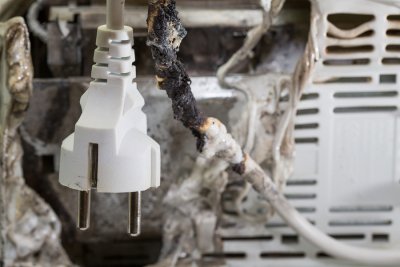
Power Surges
Power surges are among the most common home electrical issues. There are several situations that can cause power surges. For example, a power outage in one area of the home may cause a surge in the rest of the electrical supply. When a home experiences a power surge, the circuit breaker will be tripped. If you are experiencing frequent power surges at home, you may want to consult an electrician for repairs.Sparking Electrical Outlets
Sparking electrical outlets are another frequently occurring electrical issue. While some outlet sparks are normal and harmless, other sparks can indicate a dangerous problem in your electrical supply. For example, the insulation around the outlet wiring can occasionally melt. When this happens, even a small electrical spark can result in a dangerous fire. Water on or near an electrical outlet can also cause sparking.Flickering Lights
A flickering light is not always a sign that you need to change your light bulb. Sometimes, your lights may flicker due to a poor connection with your electrical supply. In order to remedy this electrical issue, you will need to contact a professional electrician. Your electrician will be able to find and repair the precise point where your wiring has lost its connection. -
Spotlight On Conserving Electricity
If your electricity bills have been on the rise, there are several steps that you can take to conserve electricity at home. With a few simple tips and tricks, you can cut back on your energy usage while reducing your monthly bills. One great way to conserve electricity is to invest in energy-efficient appliances. In addition, you can be sure to turn off any appliances that you will not be using when you are away from your home. Energy-efficient light bulbs can also help to make your home more energy-saving. For help troubleshooting electrical problems at home , you can work with a professional electrician. From circuit breaker repairs to electrical wiring services, electricians offer all of the services you need to ensure that your electrical system is operating at peak safety and efficiency. An electrician serving San Jose can help you reduce your energy consumption while getting the most out of your electrical system.
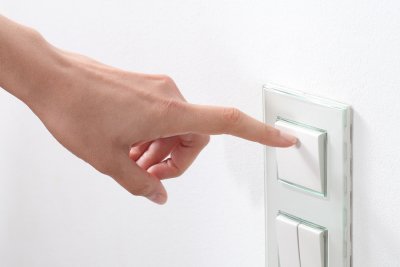
-
Safety Tips Around Electricity
Electricity is an important part of every modern home. To stay safe in your home, it is important to be aware of some essential safety tips around electricity. If you need to replace a lamp or fuse, it is highly important to turn off your circuit breaker. Circuit breakers control the flow of electricity to outlets and appliances throughout your home. By cutting off the electrical supply to your circuit breaker, you can help prevent an unintentional shock. With the services of an electrician serving San Jose, you can ensure that your home’s electrical system is safe and properly configured. To take a closer look at the basics of electrical safety, watch this video from eHow.
-
Questions You Should Be Able to Answer About Your Electrical System
Your home’s electrical system is one of its most important features. From your circuit breaker to your electric panels, the electrical system in your home is composed of a variety of sophisticated features. By educating yours el about the electrical supply to your home, you will be able to prevent an electrical emergency. An electrician serving San Jose can help you take expert care of your home’s electrical system. With the services of a qualified electrician, you can be sure that you will not be left without power. To help you test your knowledge of your home, here are some questions that you should be able to answer about your electrical system.
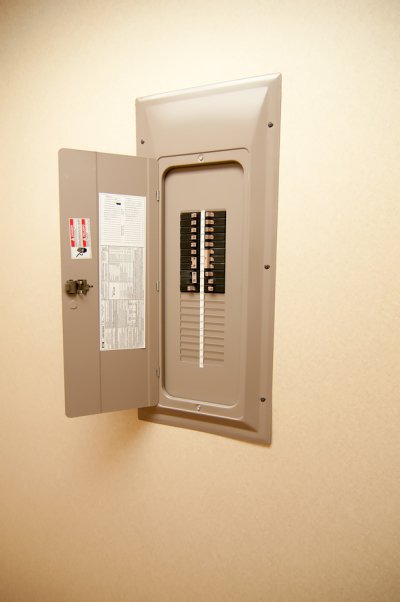
What Is the Difference Between a Fuse and a Circuit Breaker?
Fuses and circuit breakers both serve important functions in your electrical system . You will find these components inside your home’s electrical panel. Older homes may be equipped with fuses. If your home was built after the 1960s, chances are that your electrical system contains circuit breakers.Where Is Your Main Panel Located?
Your main panel is located at the power source for your building. If you open your main panel, you will find all of the circuit breakers that control your electrical supply. When your electrical system becomes overloaded, you may need to open your main panel and flip a circuit breaker switch. A licensed electrician can help you locate the electrical panel in your home.Are Your Outlets Grounded?
Grounded outlets are an important safety feature in a building. When an outlet is grounded, it is less likely to cause shock or electrocution. To determine whether your outlets are grounded, you can look at the prong holes in each socket. A grounded outlet will contain three holes, whereas an ungrounded outlet will have only two. If your home contains ungrounded outlets, you may want to schedule an upgrade with your electrician.
RECENT POSTS
categories
- Uncategorized
- Delta Electric
- Commercial Electrical
- Residential Electrical
- Electric Circuits
- Dedicated Circuits
- Circuit Breakers
- Electrical Panels
- Electrical Wiring
- Safety Inspections
- copper wires
- Electrician San Jose
- Trained Electricians
- Electrical Services San Jose
- Malfunctioning Electrical Outlets
- Circuit Breaker
- Grounding
- safety
- Flickering Lights
- Arc Fault Breakers
- electrical system
- Aluminum Wiring
- Circuit Interrupters
- House Surge Protection
- Zinsco Panel Warnings
- Wiring Conversion
- GFCI outlet
- professional electrician
- Knob-and-Tube Wiring
- modern home electrical system
- Fuses
Archives
2024
2023
2018
2017
- December (4)
- November (4)
- October (5)
- September (4)
- August (4)
- July (4)
- June (4)
- May (4)
- April (4)
- March (3)
- February (4)
- January (3)
2016
- December (3)
- November (4)
- October (4)
- September (4)
- August (4)
- July (4)
- June (4)
- May (4)
- April (4)
- March (4)
- February (4)
- January (4)
2015
- December (4)
- November (4)
- October (4)
- September (4)
- August (3)
- July (4)
- June (4)
- May (3)
- April (4)
- March (4)
- February (2)
2014
- December (3)
- November (4)
- October (4)
- September (6)
- August (2)
- July (3)
- May (2)
- April (1)
- March (2)
- February (1)
- January (1)

